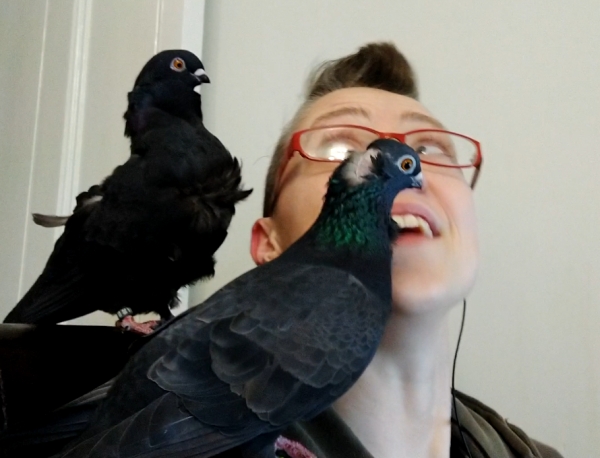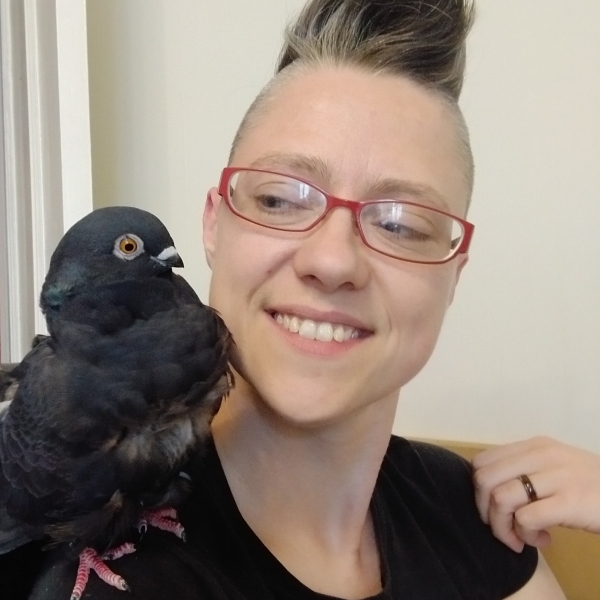The Pet Pigeon; a long-term companion who is affectionate, intelligent, and engaging
This is Mrs. Honor Pepperpot. Honor is a Valencian Figurita, the smallest breed of fancy pigeon. She has brought so much happiness to my life with her sunny disposition and gentle nature, and I just wanted to share why I think pigeons make such great pets.
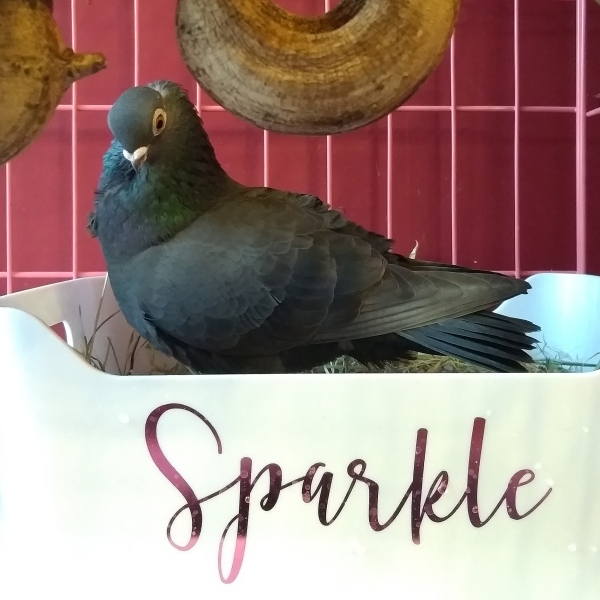
Pigeons have REALLY big hearts:
Far from being a "one man bird", Honor displays sincere affection for me, my husband, her cuddly lion, her squeaky mouse, and loves to take care of her friends with copious amounts of affectionate preening. She'll follow us from room to room, join us in the bathroom when we're having a bath, and lay down on top of my computer monitor when I'm working. She gets excited when she sees us, flicks her wing tips against her tail and runs over to preen our fingers.
They are so quiet:
Unlike a lot of pet birds, all you'll hear from Honor is a variety of gentle coos. She does fly loudly; that familiar clatter noise that accompanies pigeon take-off. But she doesn't screech, scream, or insist that the whole house gets up at dawn.
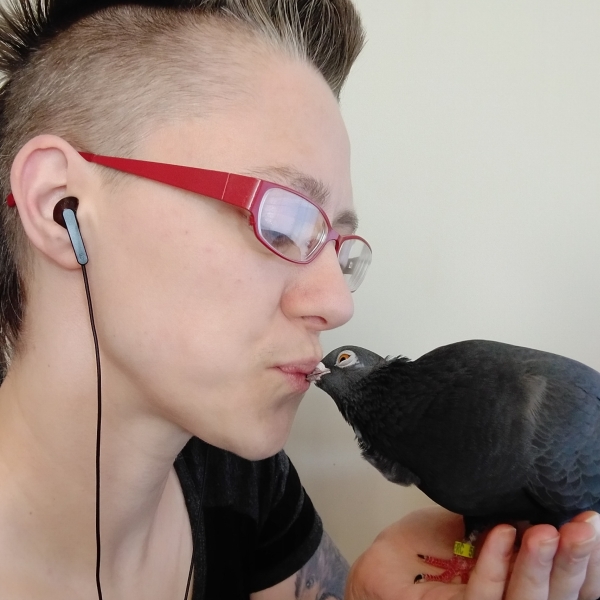
They are unbelievably chill:
Honor has a very calm nature. She doesn't frighten easily and is gently curious about EVERYTHING. Even in the early days, when she wasn't tame yet, she was pretty chill about being held. Even when you need to do something she doesn't particularly like, nail trimming for example, she won't hold a grudge.
They aren't escape artists:
Despite being extremely intelligent and able to problem solve, Honor is very content in her cage when the door is closed. She doesn't have the dextrous physical capabilities of a parrot when it comes to her beak and feet. This means you don't have the initial outlay of buying a super strong, secure cage.
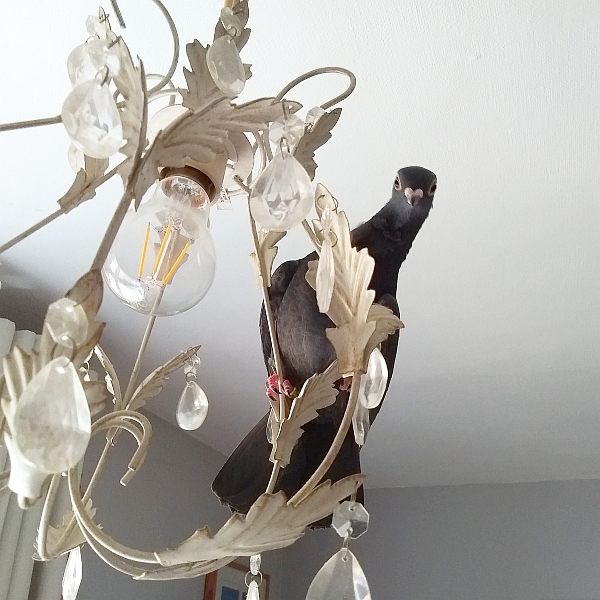
They aren't destructive:
Pigeons don't need to chew or destroy. They don't have powerful beak muscles that demand exercise. Honor enjoys exploring and tapping things with her little beak, and her toys are preened and carried about on a regular basis.
Pigeon poo cleans up really easily:
This one doesn't really need a further explanation but it's true. Out of all of the pet birds I've ever had, pigeon poo is by far the easiest to clean.
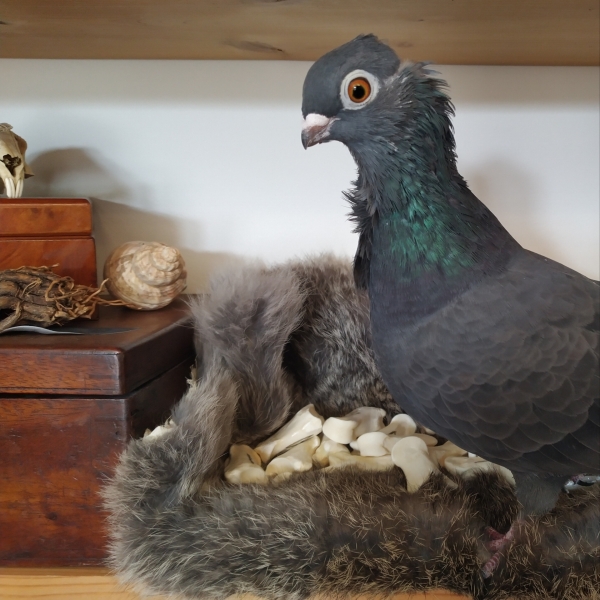
They have a homing ability:
Some varieties of pigeon more than others, but, chances are that if your pigeon accidentally gets out, they'll stay in the area and, if not, they'll probably still be back for tea.
They'll tame down easily at any age:
I got Honor when she was three years old. She'd lived in an outdoor aviary and hadn't really been handled much. It took only a couple of days for her to become interested in me, and within a week she was flirting and dancing whenever she saw me. Within two weeks she'd follow me if I went into the next room. Within a month she'd happily sit on me and preen my hair or skin.
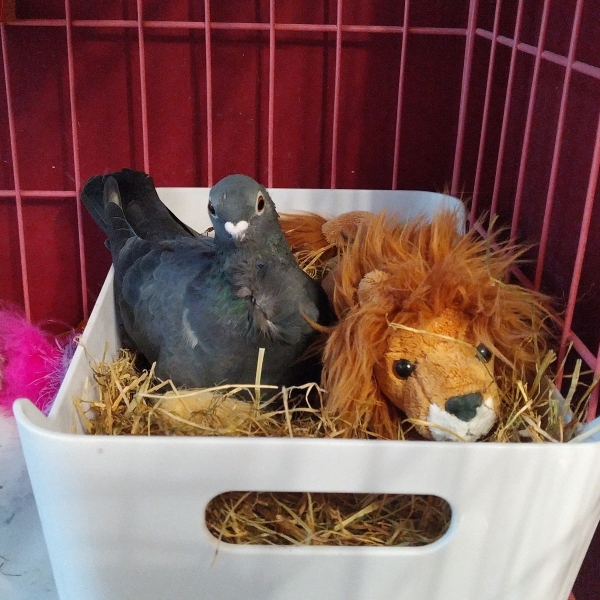
Finally, and perhaps most importantly, sourcing a pet pigeon responsibly is dead easy:
Unlike a huge majority of parrot species, pigeons have been bred domestically for hundreds of years and are well adapted to living with humans. Knowledgable, passionate people up and down the country keep and breed flocks of pigeons, and are generally happy to sell excess birds. Pigeons breed well and take superb care of their young, and only in an emergency situation are squabs pulled from the nest to be handraised - so almost all young pigeons are raised by their parents. This means that generally pigeons don't suffer the behavioural problems and cerebral damage caused by mal-imprinting on a different species.
There is a really good article on the disastrous long term psychological effects of parental deprivation (hand rearing) and flight deprivation (wing clipping) here: https://www.beautyofbirds.com/behavioralproblemsinparrots.html
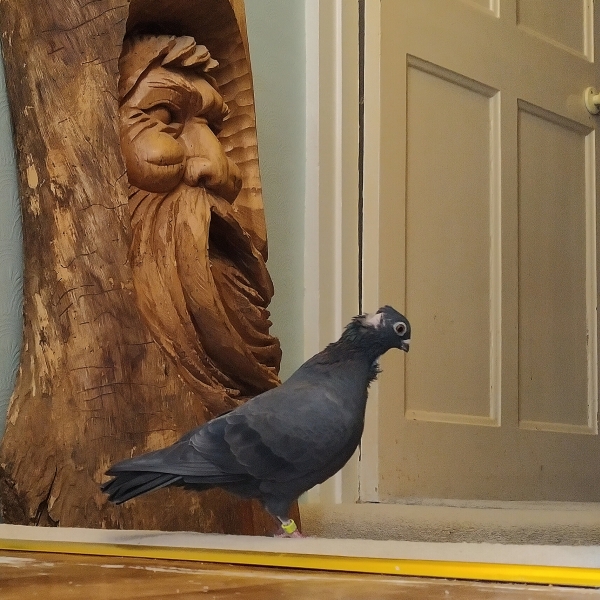
They're really easy to keep:
Honor lives in a medium sized pink dog crate. A pigeon needs enough space to be able to open their wings in all directions in their cage, as well as use their wings to move from perches to the floor. The cage floor is covered in a wipe-clean table cloth and it takes less than a minute a couple of times a day to pick up her poo and give the floor a wipe.
Honor gets as much free range time as I can give her. She loves to fly and perch in high places, and at least a couple of hours out of the cage daily are essential to a happy pigeon.
Pigeons are not perching birds with gripping feet like parrots and small passerines and do better with flat, securely fixed perches. Wood for building, such as studwork CLS timber, is better for pigeons than round or swinging perches you'd buy at the pet shop. Pigeons enjoy a lay down in the afternoon and thus enjoy shelves and hay filled baskets - although be aware that providing a basket will probably result in egg laying in hen pigeons! If that happens, just leave the eggs with her until she realises they won't hatch and abandons them.
Honor eats pigeon mix and wild bird seed, with sunflower seed hearts for hand fed treats. She'll give chopped fresh vegetables a go, but generally isn't all that bothered about eating them. Pigeons eat their seeds whole and therefore need a good quality bird grit to break up the seeds in the crop and aid digestion.
Pigeons also love to bathe and need a water dish large enough for them to do so, with fresh water every day. Pigeons have no qualms about pooping in their bath, so you might find the water needing changing twice a day. Honor will bathe every second afternoon, often just laying down in her water dish for a while and relaxing with her head feathers standing upright. In parrots, raised crest feathers generally indicate alarm, whereas pigeons raise their crest when they're feeling particularly chill.
Honor enjoys her toys, particularly toys she can preen. Toys with long 'hair' are her favourites, and small fabric items she can pick up and drop - especially if they make a noise!
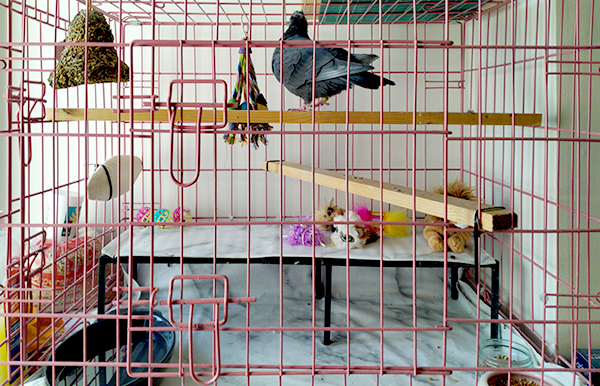
Along Came Eve
In November 2020, Honor was joined by the beautiful Eve, a black Chinese owl pigeon hen. She's rather larger than Honor and has the air of a Victorian lady about her:

Eve has adjusted well to pet life and both hens are happily living together. Eve is a sweet bird, gentle and calm. She's quickly becoming hand tame, mostly because she watches Honor to learn what's safe in her new world, and she absolutely LOVES the toys they have in their cage.
